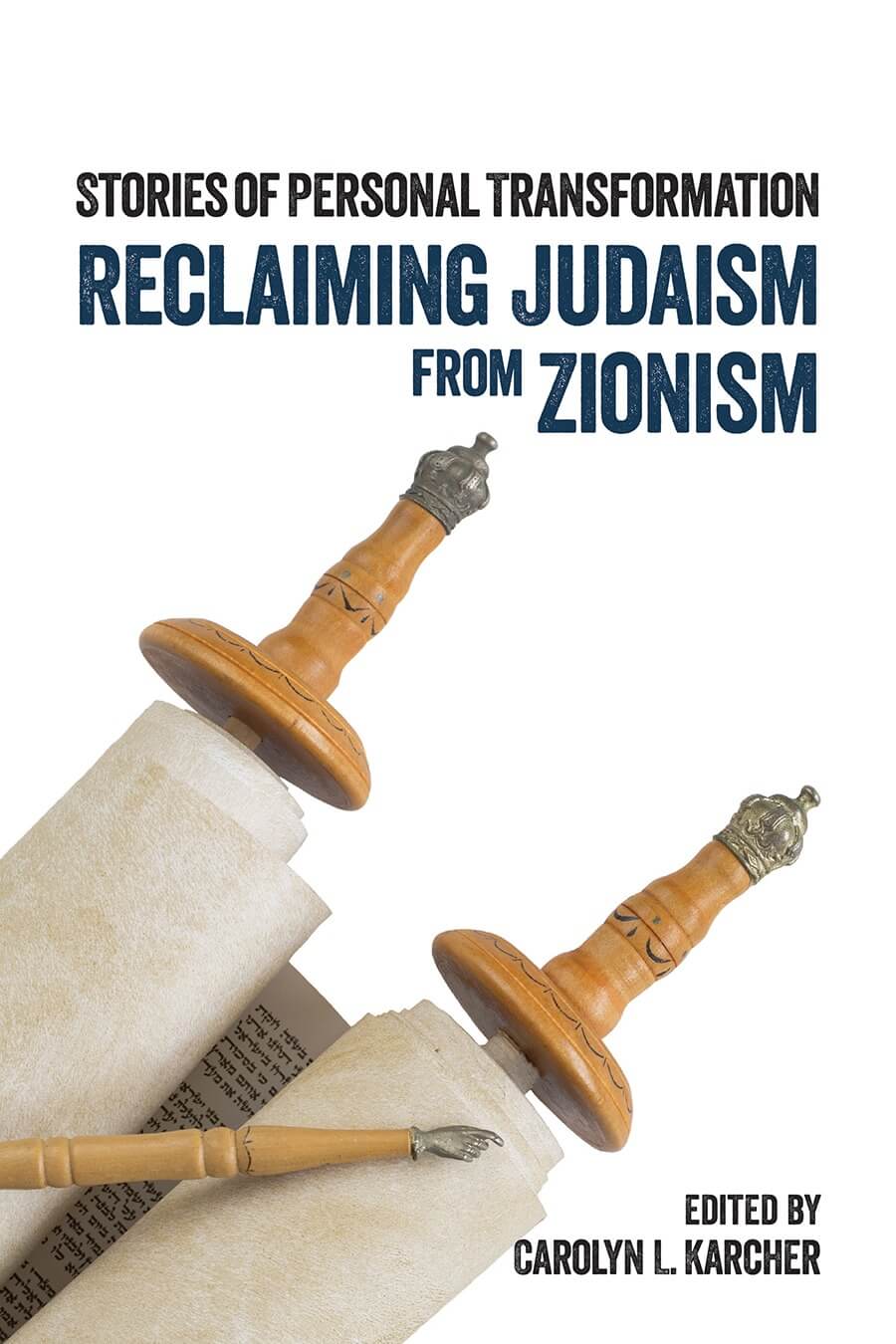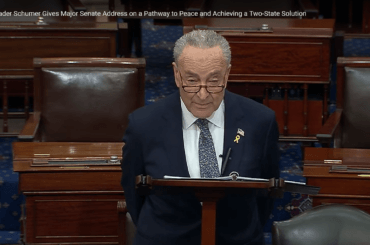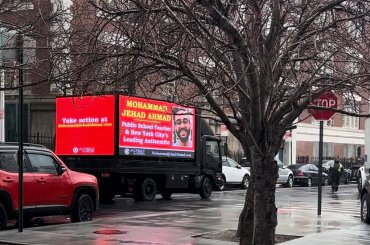“Do you think Judaism will ever recover from having been hijacked by Zionism?” a friend recently asked me.
I have wrestled with a similar question for many years: how can the ethical precepts of Judaism—pursue justice, love your neighbor, love the stranger, repair the world—be reconciled with Zionism? Any Judaism I can believe in is at odds with this nationalist ideology, which claims that only a state controlled by Jews and privileging them over non-Jews can protect them against anti-Semitism and the threat of another Holocaust.
I did not always realize this. When I was growing up in Tokyo, Japan, in the 1950s, I thought Judaism consisted only of rituals performed with Hebrew prayers and allegiance to the newly established state of Israel. Our small Jewish community, made up mainly of Ashkenazi emigres from Siberia like my father’s family and of Sephardi emigres from Syria and Lebanon, together with Israeli Embassy staff and American businesspeople, did not have a rabbi.
Perhaps that is why, instead of Judaism’s key ethical tenets, our Sunday School class was taught the story of Israel’s heroic founding, as recounted in Leon Uris’s novel “Exodus.” No wonder I confused Zionism with Judaism, mistaking a political ideology of Jewish nationalism born in the late nineteenth century for an ancient religion rooted in the Torah and the Talmud.

Not until Israel’s 1982 invasion of Lebanon did I begin to question my idealized image of Israel and, ultimately, the premise of Zionism. Israel’s indiscriminate bombing of Beirut, shelling of hospitals, and collusion with Lebanese Phalangist militias in massacres at the Sabra and Shatila refugee camps shook me to the core.
Struggling to digest these atrocities, I went to a teach-in. The main speaker contrasted Israel’s boasts of “making the desert bloom” with its destruction of thousands of Palestinian homes and olive trees. My stomach in knots, I recoiled from her message. Only when I learned that she was not Palestinian but an Israeli Jewish human rights lawyer could I let her words penetrate my consciousness.
Back then, disputing Zionism felt very scary. It certainly isolated me from friends and family. I did not know that at the start of the Zionist movement, most Jews worldwide had opposed it. Even throughout World War II, Jewish opponents of Zionism continued to hold up an alternative vision for Palestine of a secular democratic state in which all citizens would enjoy equal rights. In 1947, they demanded freedom for the region’s “entire population” and a guarantee of “the national rights of both communities,” Jewish and Arab.
Although by 1948 the Holocaust convinced a majority that a Jewish state offered the best protection for Jews, Israel’s decades of ethnic cleansing and unending warfare—and Palestinians’ tenacious resistance—have since led me to understand that a Jewish state was a false solution to the quest for safety.
Over the years, I met more and more Jews who were questioning Zionist ideology. In 2016, the idea occurred to me of collecting their stories so others contending with the same doubts could know they were not alone. I designed the collection as a vehicle for initiating difficult conversations within Jewish families and communities, through stories with which readers could identify.
I began with a handful of acquaintances. Then I solicited narratives from people who told personal stories at public events, or wrote insightful op-eds, articles, or letters to the editor. I found more contributors when those I recruited spread the word through their networks.
To ensure that the collection reflected diverse backgrounds and perspectives, I made special efforts to seek out Sephardi/Mizrahi as well as Ashkenazi Jewish contributors. And in view of the leading role that college-age Jews are playing in the Palestine solidarity movement, I worked hard to enlist them. I ended up with forty fresh and deeply personal accounts. This year, the book came to fruition, under the title Reclaiming Judaism from Zionism: Stories of Personal Transformation.
The collection defies the stereotype of Jews who reject Zionism as “self-hating.” On the contrary, it reveals that many remain religious and observant, while others take pride in a secular Jewish identity intertwined with their progressive ideals. The authors include rabbis, historians of Jewish Studies and Middle Eastern Studies, other academics, lawyers, social workers, journalists and media professionals, activists, and recent graduates. Whether religious or secular, they have come to see Zionism as violating Judaism’s most sacred ethical principles.
The Torah commands Jews: “The stranger that sojourneth with you shall be unto you as the home-born among you, and thou shalt love him as thyself; for ye were strangers in the land of Egypt” (Lev. 19:34). Zionist ideology instead teaches Jews to treat Palestinians as strangers in their own land, enemies who must be expelled.
It is long past time to reclaim Judaism from Zionism, long past time for all who value the ethics of Judaism—or of simple humanity—to repudiate any ideology that denies Palestinians equality, freedom, and dignity.



Hi Carolyn, and thanks for the article. I read something yesterday that I believe is appropriate to post here:
“This Chicago Synagogue Commemorates Nakba Day, Not Israeli Independence Day …
If a pro-Israel activist were to conjure an image of an anti-Zionist synagogue, they’d probably come up with something like Tzedek Chicago.
A congregation of 180 people that meets in a church basement, Tzedek Chicago’s “Core Values” declare that it’s non-Zionist. In practice, though, that means an explicit emphasis on advocating for Palestinian rights and criticizing Israel’s conduct. Those themes were woven throughout its service last Yom Kippur — from the rabbi’s sermon to the Torah service to the liturgy itself.
Discussing the biblical story of Jacob and Esau, a speaker said that Esau, the scorned older brother, experienced a “personal Nakba,” the name Palestinians use for the catastrophe they commemorate on the anniversary of Israel’s independence. The sermon was about a recent trip to Gaza. For the Martyrology, a section of the service that traditionally commemorates Jews who died for their faith, the synagogue instead memorialized Gazans who died in clashes with Israel on the border.
And in addition to atoning for personal misdeeds, the congregants collectively beat their chests to repent for Israel’s actions.
“For the sin we have committed before you for blockading 1.8 million Gazans inside an open-air prison,” the congregation recited. “For the sin we have committed before you for wedding sacred Jewish spiritual tradition to political nationalism and militarism.”
Even as they disagree over whether God exists or where the Torah comes from, synagogues across the country of all denominations take supporting Israel as a matter of course. Many recite prayers for the state and its army. It’s standard to see Israeli and American flags flanking the front of synagogue sanctuaries. AIPAC, the pro-Israel lobby, welcomes hundreds of synagogue delegations to its annual conference.
Tzedek Chicago was born of a desire to escape all of that. But the synagogue doesn’t disengage from Israeli-Palestinian discourse. It goes in the opposite direction. There are no flags at the front of the sanctuary, and instead of celebrating Israeli Independence Day, they commemorate Nakba Day.
“There were no places for Jews — we believe there are a significant number of them — who either were not Zionist or were engaged actively in Palestinian solidarity work and really wanted their social justice identity to be expressed through the life of the congregation,” Tzedek Chicago Rabbi Brant Rosen said. “We state specifically that one of our values is we do not celebrate the fusion of Jewish tradition and political nationalism.”
Rosen, 56, once was a liberal Zionist serving as rabbi of the Jewish Reconstructionist Congregation in suburban Chicago. He’s also the past president of the Reconstructionist Rabbinical Association. But successive trips to Israel and Palestinian areas, especially surrounding Israeli wars in Gaza, led him to affiliate with Jewish Voice for Peace, which advocates a boycott of Israel and identifies as anti-Zionist. Rosen is the co-founder of JVP’s rabbinical council.
After the 2014 war in Gaza, Rosen says “it became impossible for me to do my work anymore,” and he resigned from his former synagogue. He and a group of former congregants founded Tzedek Chicago the next year. Rosen says it’s loosely affiliated with JVP.
During the week, Rosen is the Midwest Regional director for the American Friends Service Committee, a Quaker organization that supports the boycott Israel movement and draws frequent criticism from pro-Israel voices, including for its role in co-hosting a peace dinner in 2008 featuring Iranian President Mahmoud Ahmadinejad. …
… “It is not particularly Shabbesdik to bring that level of protest into Shabbat, which should be about renewal and replenishment and rejuvenation,” Rosen says.
But for some members, non-Zionism is an inherent part of that rejuvenation. Uncomfortable in nearly every other synagogue they’ve encountered, they say they finally feel at home.
“It felt like an LGBTQ person coming out of the closet,” said Lesley Williams, a JVP member who belongs to Tzedek Chicago. “We were able to say who we are without being judged or ostracized or kicked out of the Jewish community.””
https://www.haaretz.com/us-news/this-chicago-synagogue-commemorates-nakba-day-not-israeli-independence-day-1.7340091
Here’s An article from The Israeli Press That Is Outlawed In Many US anti-BDS States (& of course, in Germany): Neither Israel’s nor Germany’s slide into fascism was accidental https://www.haaretz.com/israel-news/.premium.MAGAZINE-neither-israel-s-nor-germany-s-slide-into-fascism-was-accidental-1.7338787
Also time to reclaim History from Judaism/Christianity:
“A city gate from the time of King David was discovered after 32 years of excavation in the ancient city of Bethsaida in the Golan Heights’ Jordan Park, opening up a world of new possibilities, opinions and theories about the ancient landscape of the Land of Israel.
……Findings presented by the researchers point to the possibility that Bethsaida was not an Israelite kingdom but instead an Aramaic one. Within the city limits of Bethsaida, there was a stone stele bearing the image of their bull-shaped moon god, which dates back to the 11th century BCE. This monument is one of seven other similar tombstones found from the ancient world, from southern Turkey to Egypt. Two have been found in Bethsaida alone.”
https://www.jpost.com/Israel-News/Archaeologists-discover-city-gate-from-time-of-King-David-591653
Am I only only Jewish American of my generation who wasn’t spoon fed Zionism along with my Judaism? The more I learn about other Jews’ experiences, the more I appreciate my own parents.
The Zionism v Judaism thing is about reality and whether or not reality can be created. It’s about truth vs bullshit . It’s about groupthink .
Neil Postman was one of the Jews Ben Gurion expected to make Aliyah after WW2. He stayed in New York.
https://www.salon.com/2015/01/04/meet_the_man_who_predicted_fox_news_the_internet_stephen_colbert_and_reality_tv/
« perhaps most central to all of Postman’s work was the notion, which he shared with McLuhan, that technology is not neutral. “As a culture moves from orality to writing to printing to televising, its ideas of truth move with it,” he wrote. “Truth, like time itself, is a product of a conversation man has with himself about and through the techniques of communication he has invented.
Even more basically, he was concerned not just how we used our tools – gunpowder, the clock, the printing press, the television, the computer – but how our tools use us. And unlike theorists who took a detached, on-one-hand/on-the-other hand view of media, Postman made clear where his values were: “Some ways of truth-telling are better than others, and therefore have a healthier influence on the cultures that adopt them «
The « technology » that Zionism adopted was violence. Postman’s theory is that technology is not neutral .
Violence allowed Zionism to get what it wanted . But 70 years later Israel is still in its grip. And violence redefined the truth in Hebrew. It gave rise to Hasbara.
They lie to us then lie to themselves about lying to us.
Angela Merkel is the leader of Germany. She was in Normandy during the week with the leaders of the WW2 allies . (Russia wasn’t represented. )
Germany made peace with France more than 70 years ago. It also renounced violence.
https://mobile.twitter.com/BBCArchive/status/1058682704332447745
Violence no longer defines the relationship between Germany and France.
https://mobile.twitter.com/marceldirsus/status/1062092533772226564
Israel is still fighting 1948. Because technology is not neutral. And reality in English in what counts, not reality in Hebrew.
What a shonda.